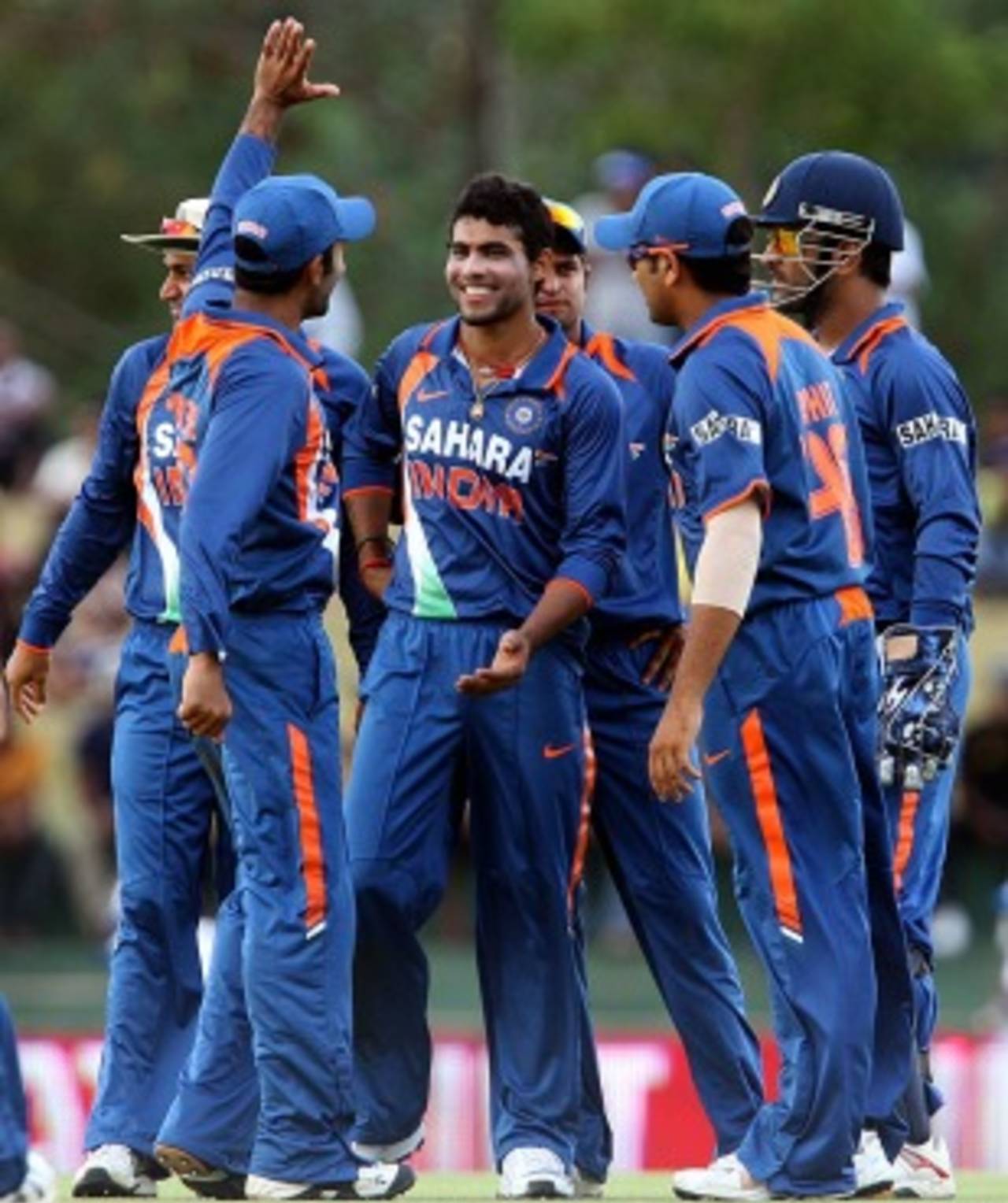The recent announcement of a
restructuring of the bloated international calendar by the ICC was an opportunity to restore sanity to the world game. Instead, all it has confirmed is that the battle within the ICC between the money men and those with a genuine interest in the world game is over. As expected, the bean counters have won.
The 2015 World Cup will have 10 teams, and while ICC officials say that no final decision has been taken on how these teams will be selected and that there might be still be a chance for Associate members to participate through a qualifying tournament, there is little likelihood of this materialising.
The working party that made the recommendations was made up of David Collier (England), James Sutherland (Australia) and N Srinivasan (India) with no Associate representation, and only David Richardson of the ICC there as anyone remotely independent. With a sub-committee like that it's no wonder this decision was reached.
The headline news regards the World Cup, a distended tournament, which, lest we forget, was brought to its knees in the Caribbean in 2007 largely as a consequence of the ICC's dreadful management. Instead of tackling the root causes of the malaise the ICC simply culled four of the six Associates to ensure there could be no repeat of the commercial disaster that came from India's early exit.
In 2015 the ICC will go a step further and remove the Associates altogether. While fans might have hoped this will mean a leaner event, the depressing news is it won't. The reality is that the number of matches will come down by one, from 49 to 48. But there will be more cheer for the commercial arm of the ICC because there will be more games involving the lucrative teams.
In a bid to deflect flak, the ICC claims no decision has been made about the structure of the 2015 World Cup, offering a flickering hope of a qualifying tournament that might allow Associates to win through to the finals. Sadly this just won't happen. It appears a stalling exercise to assuage critics until the dust has settled.
When I raised qualification involving Full Members as a possible suggestion a few years ago, at the time Zimbabwe cricket was imploding, I was told by a senior ICC official it would never happen. The reasons, he said, were two-fold.
Firstly, the Full Members would never agree to a structure that could result in them missing out. In a straight qualifying competition involving countries at the bottom of the ODI table, at least three Full Members could quite realistically be beaten by leading Associates and so miss out on the World Cup. While financially the ICC would ensure they would not lose money - for example, India's and Zimbabwe's earnings from the 2007 competition were massively more than Ireland's, though the first two made early exits and Ireland made the Super Eights - the implications for sponsorship and local exposure would be considerable.
The only way Associates might return is if those controlling the finances stop pretending and just state that certain countries - probably no more than three or four - have to play in any tournament, leaving the rest to scrap among themselves for the other places
While it seems a ludicrous suggestion at the moment, India were as recently as 2005 eighth in the ICC's ODI rankings. It is possible that by 2015 a major country could again be out of form and risk getting sucked into a qualifying event.
Given pressure from within the ICC as well as from media partners, who signed a colossal TV rights deal, led to a restructuring of the 2011 competition, neither would be willing to accept anything that might, however remotely, risk the commercial appeal of the World Cup, especially in the massive subcontinental market.
So for all the rhetoric about expanding the game - and to be fair here, there are many within the ICC who genuinely believe in this vision - a glass ceiling has been lowered into place, which ensures Associates will probably not be able to play again at a full World Cup.
In defence of the ICC, six Associates, as was the case in 2007, was too many. While Ireland made the headlines, others, including Kenya and the dismal Bermudans, were totally outclassed. A qualifying system between the top Associates and the worst Full Members would be fairer and would have also ensured the competition could genuinely be called a World Cup.
The two small pluses are that the emergence of Twenty20 means the Twenty20 World Cup, generously expanded to 16 teams, will give Associates a chance to bloody a few noses every couple of years. But the top Associates have not welcomed this, as it all but ensures their remote chances of attaining Test status, which could only come through impressive performances in 50-over games, disappeared. The other gain is that the unloved Champions Trophy might be consigned to the dustbin.
The only way Associates might return is if those controlling the finances stop pretending and just state that certain countries - probably no more than three or four - have to play in any tournament, leaving the rest to scrap among themselves for the other places. At least it would be more honest than the situation we have at the moment.
The Associates have been fighting a battle for recognition they were never likely to win. For all the pretence of the ICC being a democratic organisation, most people know the game is now run by three countries who are hellbent on keeping an increasing share of the pot between themselves. However much they might claim to have the interests of cricket at heart, the revamping of the World Cup has exposed that as a sham.
Martin Williamson is executive editor of Cricinfo and managing editor of ESPN Digital Media in Europe, the Middle East and Africa
